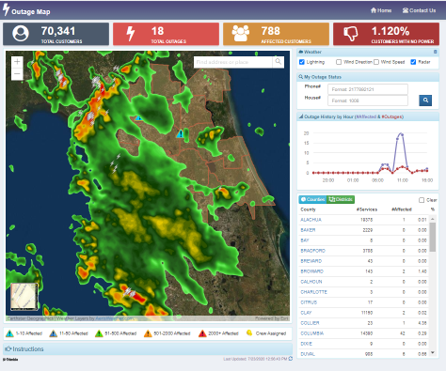
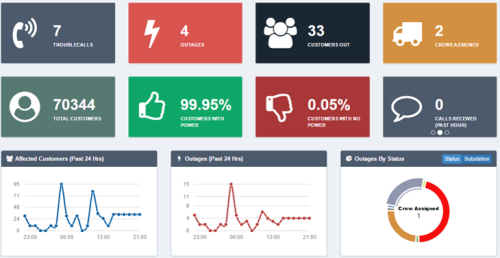
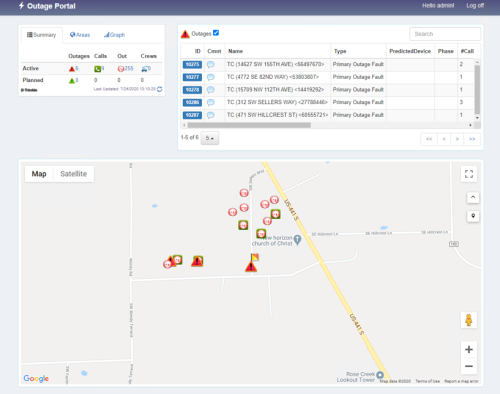
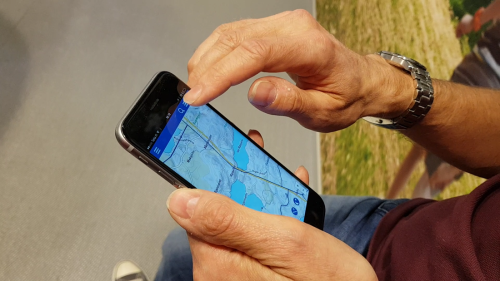
Keep customers and other key constituents informed during planned or unplanned outages
Modern interface makes it easy for customers to find and view relevant outage information, including locations, customers affected and estimated restoration times
Connects to most OMS systems
Highly configurable based on utility preferences
Accessible with a PC, laptop, tablet or mobile phone
Features advanced map views using Esri or Google maps
Overlays weather information for additional insight and situational awareness
Scalable for utilities large and small
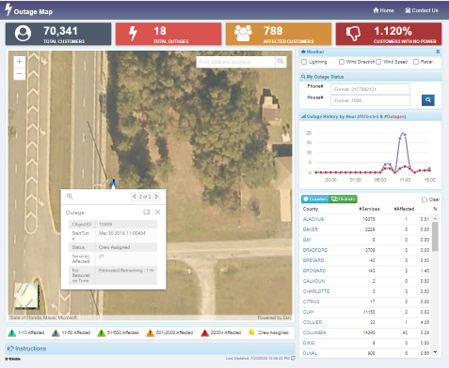
For internal utility staff and management to quickly understand outage situation and restoration efforts
Offers at-a-glance visualization of key outage indicators and metrics such as total number of outages, number of customers affected, total crews assigned, outages by substation or status and more
Provides for general situational awareness of overall outage events
Enables quick access to detailed information for better insight, understanding and optimized decision-making
Configurable to the specific informational and workflow needs of a utility
Click through key metrics and drill down into specific KPIs and data

Delivers outage information to internal staff packaged with key outage details, metrics and interactive maps
Contains a map-based view on crews, outage status and locations
Summarizes active outages, calls, crews assigned, total customers affects and more in active counts, area summaries, graphs
Filters by outage, calls, or affected customers
Efficiently track outages and direct response
Collaborate with other teams to optimize outage coordination and communication
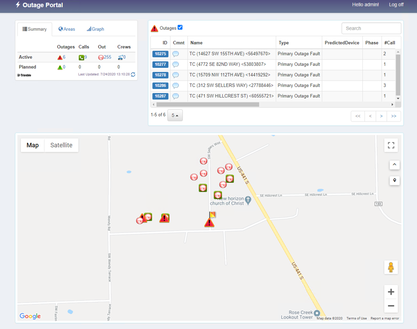
Manage network events such as sustained faults and planned interruptions
Facilitate efficient and optimal supply restoration, extensive trouble call management, and various real-time analyses to prioritize the faults especially during major downtime
Plan outages and easily record past events regarding switch status, alarm notifications, exchanging of permits and other safety precaution
Benefit from built-in automation to produce outage history data and perform accurate outage analyses for direct compensation and outage statistics
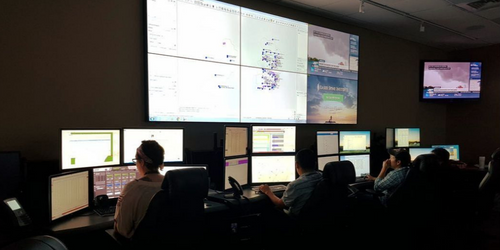
Make use of a wide variety of external communication services and interfaces, including online public-facing outage maps, SMS and email for notifying affected customers of ongoing outages, or a zip-code based interactive voice response (IVR) on your outage hotline
Inform customers at the beginning of an outage, keep them up-to-date with estimated restoration times, outage causes, and other information
Shorten outage response, duration, restoration times and improve SAIDI, CAIDI and SAIFI scores
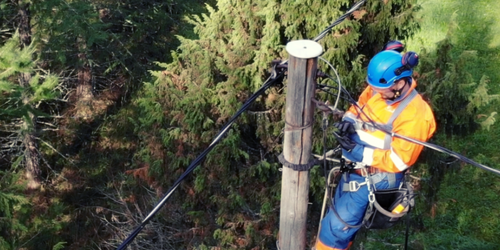
Trimble's Utility To Go mobile solution for outage management provides field crews with secure access to utility network data anytime, anywhere, in real-time and with most web browsers
Scales for field crews in outage situations when also external contractors are needed for fault restoration
Gives field crews secure access to real-time network data and the same map view as control room to:
- Check current status or real-time topology of the network, operate switches, and start repair work with no need to contact the control room
- Update asset details and operative data, such as estimated repair time. Any changes made in the field are immediately visible in the control room
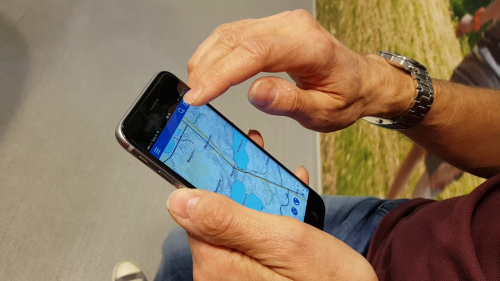
Utility To Go Features:
Fast maps. Add background maps in multiple formats or add third party map providers.
Powerful search. Fast search for map addresses and all network data.
Specific data. Freely configurable data layers to reveal exactly the right network data on any map zoom level.
Operative state in real-time. View the electrical network topology and switching status in real-time, and see the up-to-date information on network outages.
Updates in the field. Update network element and operative data, such as estimated repair times, for outages and low voltage switching statuses directly in the field to maintain maximal data integrity.
Maintenance on the go. Allow field crews to view maintenance data for network elements, pick the nearby tasks and execute actions in the field.
Offline work. Download portions of network information to a mobile device and view utility network, locate assets and add notes even when a mobile data network is not available.
Location sharing. Viewing the locations of all field crews enables efficient assignment of tasks, allowing field crews to complete more work by having to drive less. This results in greater productivity while saving money in reduced fuel consumption.

